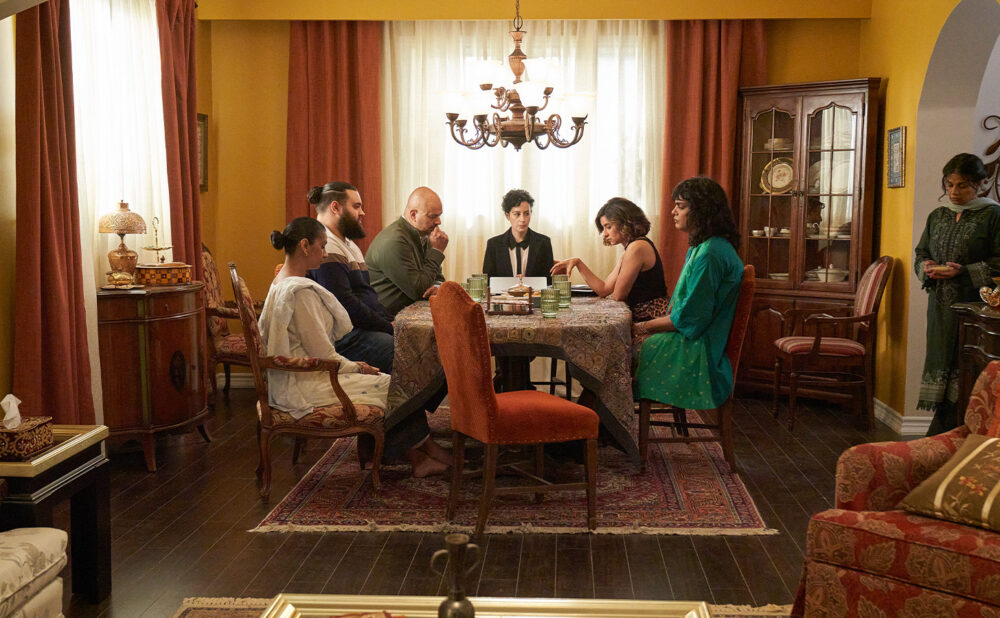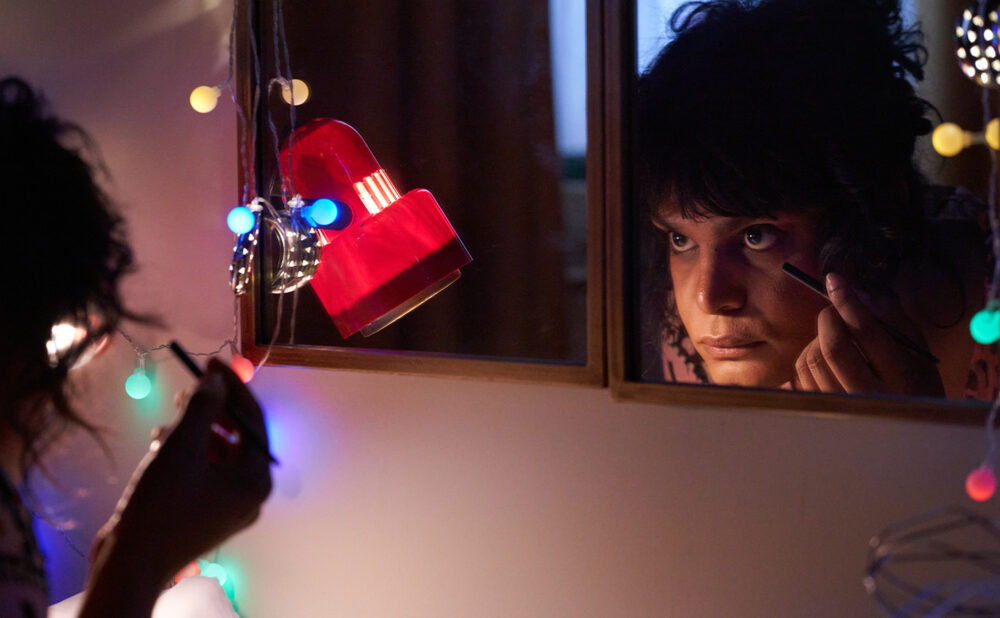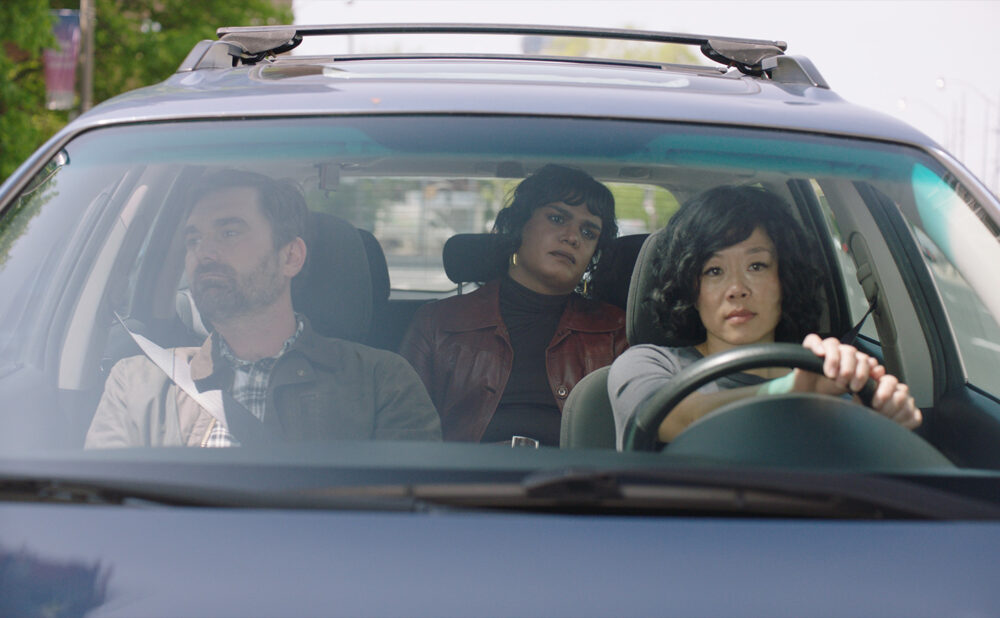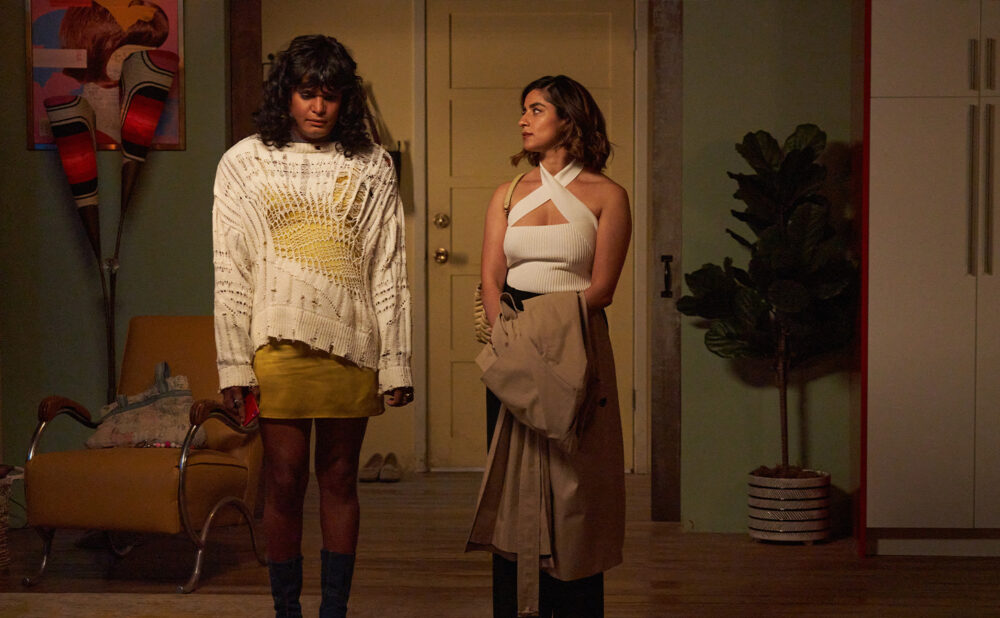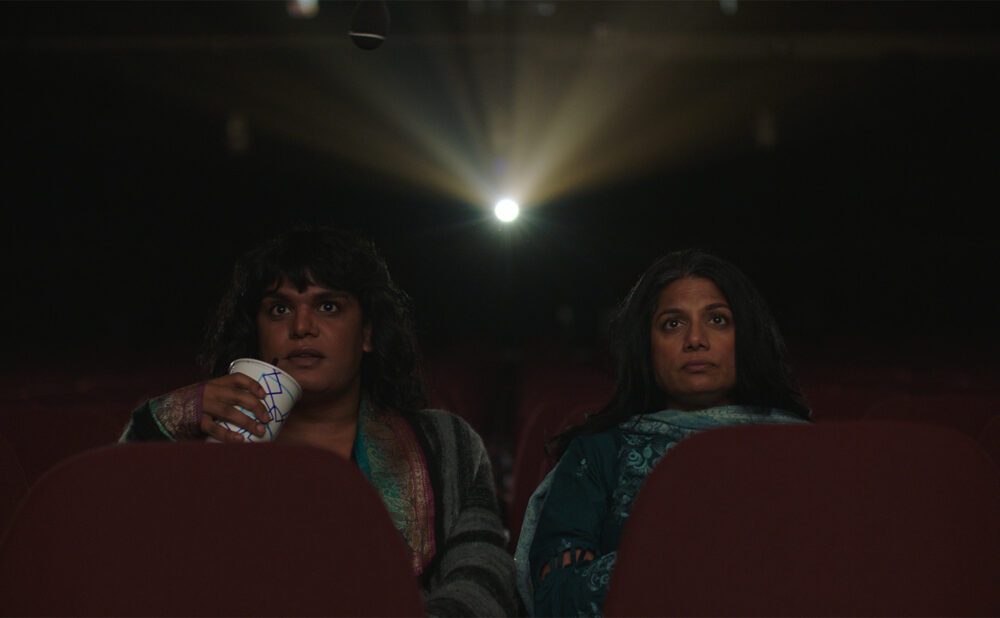‘Sort Of’ Season 3 is ground-breaking dramedy, will be CBC’s next global hit
‘Sort Of’ manages to be understated yet stunning
Sort Of
Where: CBC Gem
What: Series, Season 3, 8 episodes, 22 mins.
When: Fri., Nov. 17, two episodes weekly
Genre: Dramedy
Rating: NNNNN (out of 5)
Why you should watch: One of the best shows on CBC — ever. Sort Of manages to be understated yet stunning with co-creator/writer/actor Bilal Baig leading an incredible cast that tackles major issues gently and powerfully. Baig plays a trans nanny in a show where gender identity is a coincidental, not defining, part of the story. Brilliant television that packs an astounding amount into a sitcom-length show.
LIKE THEIR CHARACTER, trans nanny Pakistani-Canadian Sabi Mehboob, in CBC’s brilliant dramedy Sort Of, Bilal Baig projects a quiet confidence with soft-spoken words that deliver plenty of insight for those prepared to lean in and pay attention.
I’m a little star-struck when Baig sweeps into a CBC conference room at the network’s Front St HQ in the weeks before the launch of Sort Of’s final season to discuss the ground-breaking show. A sweet waft of perfume announces their arrival milliseconds before they enter the room.
Sort Of is just that good: deceptively dense in storytelling while never beating viewers over the head with issues or political points. Among the remarkable things about Sort Of is the lead character’s trans identity is almost coincidental, at least at the beginning.
Initially, it’s simply an astute story about the complicated relationship between a nanny and the progressive family that employs them. A “member of the family” when it suits them, just an employee when they decide that’s how it is.
“We knew our character was going to be trans,” says Baig of the show’s development process with co-creator Fab Filippo. “But there was just so much more to say. One of the things that thrilled me about the first season was the relationship between Sabi and their mother. I wanted to talk about South Asian women over the age of 50 who are so complex, and we don’t get to always see them in that complexity.”
Throughout its three seasons Sort Of provides an insightful window into the suburban South Asian-Canadian experience like no other show.
“The other side is I didn’t want it to feel like we were hiding the transness, trying to sneak it in. It’s just the way I feel like I’ve lived my life and how so many trans people I know have lived their life. It’s part of our every day and it’s sometimes something we don’t talk about for weeks; it’s just who we are.”
The “every-day-ness” of trans life is part of the power of the show and its ability to disarm the “other” in immigrant and gender-fluid communities — all leavened with plenty of laughs among the insights.
I think Sort Of will be CBC’s next Schitt’s Creek, a slowly building show that will eventually garner a dedicated international audience through streaming. I wonder if Baig is daunted at becoming a trans symbol.
“What helped was we had multiple trans characters from the start. Prior to the show, I consumed a lot of media where trans people were siloed with their own kind; it was a show only about trans people or trans people were dead bodies on an otherwise cis show. To capture the spectrum of gender was really exciting to us.”
Baig says some of their trans friends complained that Sabi was “too perfect” in the first season: “the good trans.”
“I do remember in Season 2 feeling drawn to how Sabi is messy like everybody else. So much of the conversation with my friends has been about how we just need nuance. We don’t need another two-dimensional representation of us; it feels harmful at this point.”
Baig notes a new trans cliché: “I’m seeing the trans characters now as a social justice warrior, the righteous trans person, which is another side of dehumanization.
“Our approach since Season 1 has been, what’s the trope, what’s the stereotype and how can we subvert it? And when is it okay to kind of meet that stereotype?
“That was fun and playful. We’re really aware of the politicalness of the show; sometimes we’re saying a lot just by having characters stand next to each other.”
Baig says successful people from marginalized communities “talk about the pressure of being the only voice and having to represent an entire community. But we had South Asian writers in our first season, we had trans writers.”
Despite this, when the “cool producers” after Season 1 asked, “What do you need to do your job, to make it even a little better for you?” Baig’s response was, “I just need more trans people on our set on a daily basis — and in crew, specifically, which felt really white-male-dominated.
“And then we did it.”
They created a mentorship program for trans youth. Twelve young people got jobs behind the scenes and “they’re getting union jobs now,” says Baig. “It wasn’t just makeup and wardrobe; they were everywhere. It was cool.
“And it wasn’t that hard,” they say of their commitment to inclusion, not to brag but to encourage.
“If you care about it enough, you can build it and it works. And it does start from the top, with intention. There’s no winning when we say we care about diversity but it’s the first thing we’ll let go of when we’re stressed on budget — that’s not how we approached it, and I really hope it means something to this industry in particular.”
I note that things seem to actually be getting worse for the trans community, not better.
“I think so. In my circles, we talk about increased violence. There’s this myth, some people feel like trans people only started existing a couple of years ago.
“This specific attack on us and our rights is because there’s more of us speaking out, more of us taking up space, sharing ourselves with the world. I think that freaks people out.”
Baig emphasizes Sort Of is very much a team creation. “It’s not the Bilal Show” — their key collaborator from Day One has been Toronto writer/director/actor Fab Filippo.
Baig’s background is in theatre. They graduated from Humber in 2016 and had their first play going into production at Theatre Passe Muraille before they even finished school. Filippo and Baig knew each other in the theatre community and in 2018 when they were both performing in the Tarragon Theatre’s production of Theory they brainstormed about working together..
“Neither one of us were the leads so, lots of downtime. There was a time in my life when I was brown and trans and a nanny and, telling Fab about it, we just thought it was so funny, me working with kids and the image of it. He asked if I was curious about television and I said no, I was terrified — still kind of am.”
As they explored the range bringing their two experiences together would offer, “I wanted to know where his heart was in the storytelling because I was curious. I thought, ‘I want to make something with a cis white dude in his 40s.’ I think that is scary and hard and exciting and something I haven’t done before”.
And, the results are stunning, as Baig brings their unique insights into the character of Sabi while Filippo’s life informs the picture-perfect portrayal of “the dad,” Paul (brilliantly played by Gray Powell) battling all the contradictions of trying to be a progressive father but still haunted by dad-ism and his own privilege.
So, why are they calling it quits with this season being the last?
“There was something about what we get to do in the third season that feels like it is the third and final chapter of a three-part story. We tell a very specific story about a big moment in time for Sabi — and it just felt right, exciting in a way. It felt cool to be, “I think it’s done now” versus “Can we squeeze more out?”
It takes a lot of confidence to step away from something that’s working, but Baig, like Sabi, projects quiet faith in themselves that others find easy to share. Baig says they are eager to get back to theatre. Great, but with an L.A.-based manager promoting the star, don’t be surprised to see them in major screen productions

